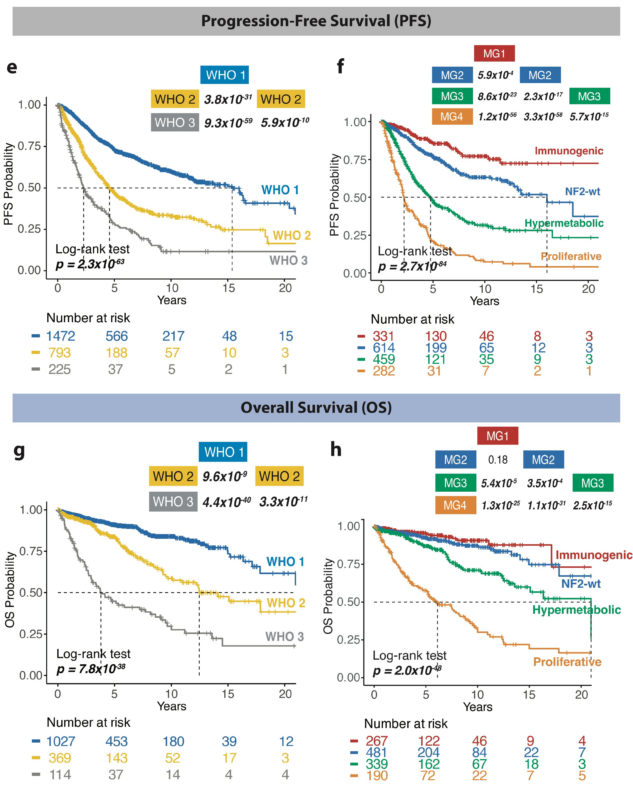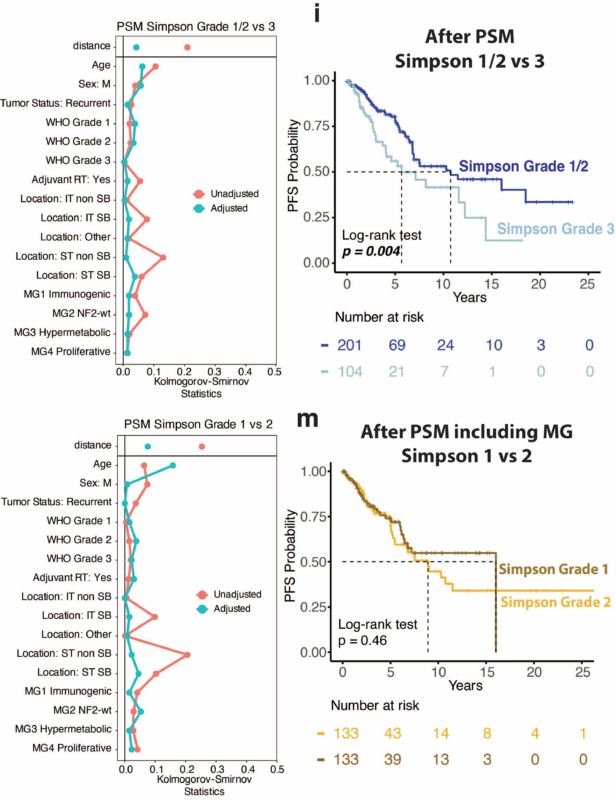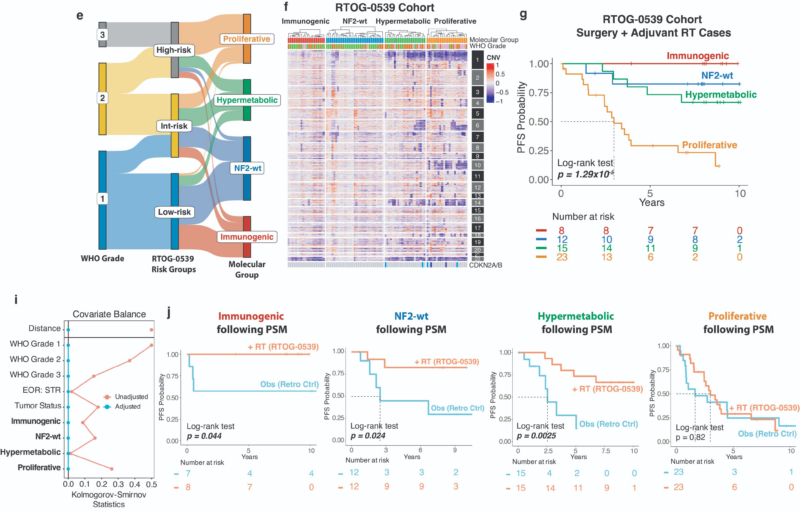Recently, an article by Justin Wang et al. titled “Molecular classification to refine surgical and radiotherapeutic decision-making in meningioma” was published in Nature Medicine.
Authors: Justin Wang, Vikas Patil, Alexander Landry, Farshad Nassiri, Gelareh Zadeh et al.

Justin Wang, Resident Physician at the University of Toronto, shared this article on X, commenting:
“Glad to share some of my PhD work on using molecular classification to predict outcomes following surgery and radiotherapy in meningiomas published in Nature Medicine.
Grateful to Gelareh Zadeh and Farshad Nassiri for helping guide this work and to our collaborators, reviewers, and funding agencies.
For this study we utilized over 1600 meningiomas with molecular data as well as invaluable clinical trial cases from the NRG Oncology RTOG-0539 phase 2 clinical trial obtained through the NCI Cancer Moonshot Grant. Some of our findings below…

We show that gross total resection prolongs progression-free-survival across meningiomas of all molecular groups but with diminshing benefits in the most biologically aggressive Proliferative cases. However these same cases obtain a significant overall survival benefit from GTR (even when controlling for age, sex, WHO grade, primary/recurrent tumor status, and receipt of adjuvant RT).

Moreover, Simpson Grade also remains important- following propensity score matching of key baseline covariates between cases that naturally get different Simpson grade resections (including grade, Molecular Group, location, etc.) – obtaining a Simpson grade 1 or 2 resection improves PFS compared to resection alone without adjunctive dural treatment (Simpson grade 3).
However, there may not be a substantial difference between a Simpson grade 1 resection (excision of the dural completely) vs grade 2 (thermocoagulation alone).

Another critical question in meningioma is which cases will and won’t respond to radiotherapy (RT). We found while the outcomes of Immunogenic, NF2-wt, and Hypermetabolic meningiomas are improved after RT, Proliferative meningiomas may not obtain a significant benefit, suggesting these cases are RT-resistant.
 .
.
This is important as Proliferative meningiomas can be found across all WHO grades, including in the RTOG-0539 clinical trial cases, which we were able to reclassify into Molecular Groups to reproduce the same findings, suggesting Molecular Classification can resolve some of the significant heterogeneity in outcomes seen with these tumors, particularly after RT.

Lastly, we were also able to utilize the RTOG-0539 clinical trial cases for biomarker discovery and build multiple molecular predictive models of response to RT that were able to predict PFS following RT in meningiomas better than WHO grade alone including being able to identify RT-resistant meningiomas in each WHO grade.

All in all this, we believe this work strongly supports the rationale for adopting a unified molecular taxonomy for meningiomas and to incorporate molecular profiling into future clinical trial designs.
A big thank you again to NRG Oncology, NCI Cancer Control, The Brain Tumour Charity, CIHR, NREF,
Princess Margaret Cancer Centre, U of T Department of Surgery, Institute of Medical Science.”
Gelareh Zadeh, Professor and the Dan Family Chair in the Department of Surgery at the University of Toronto, shared this post, adding:
“Very excited Breaking News Meningioma Research.
Our work published in Nature Medicine. Access the paper online now.”
Sources: Justin Wang/X and Gelareh Zadeh/X
